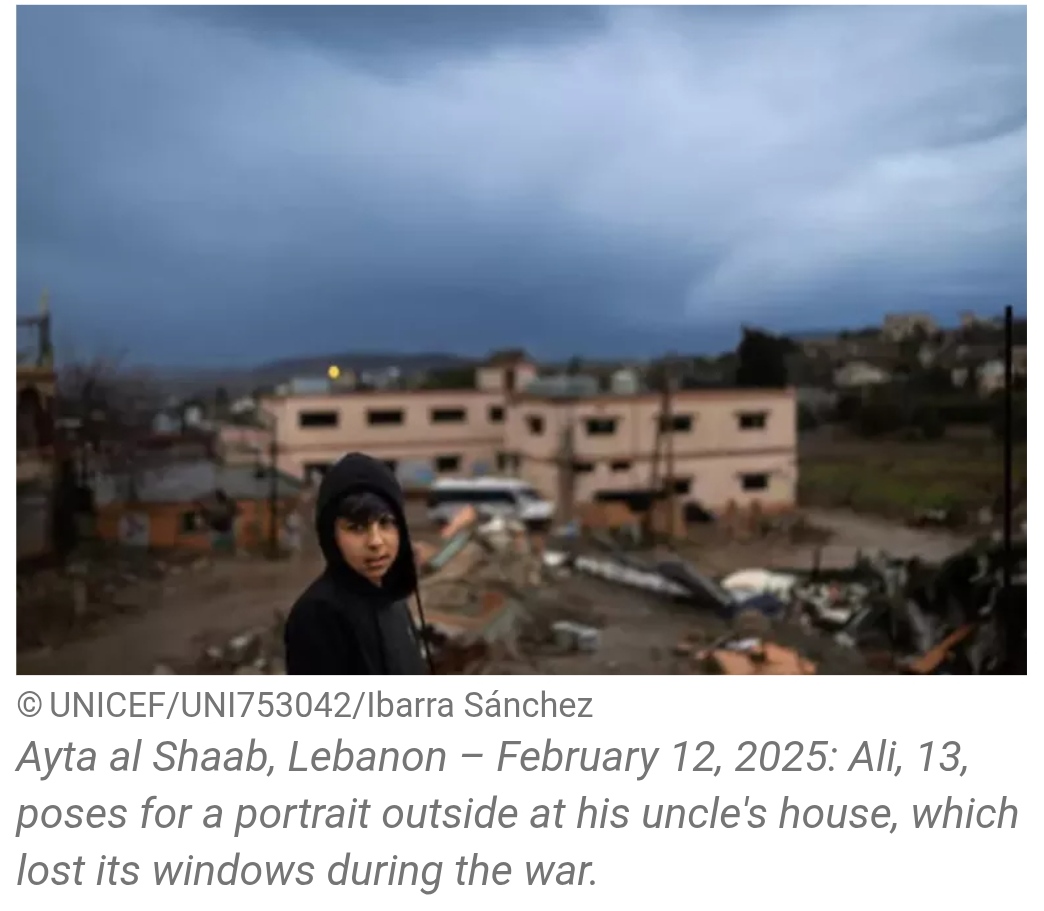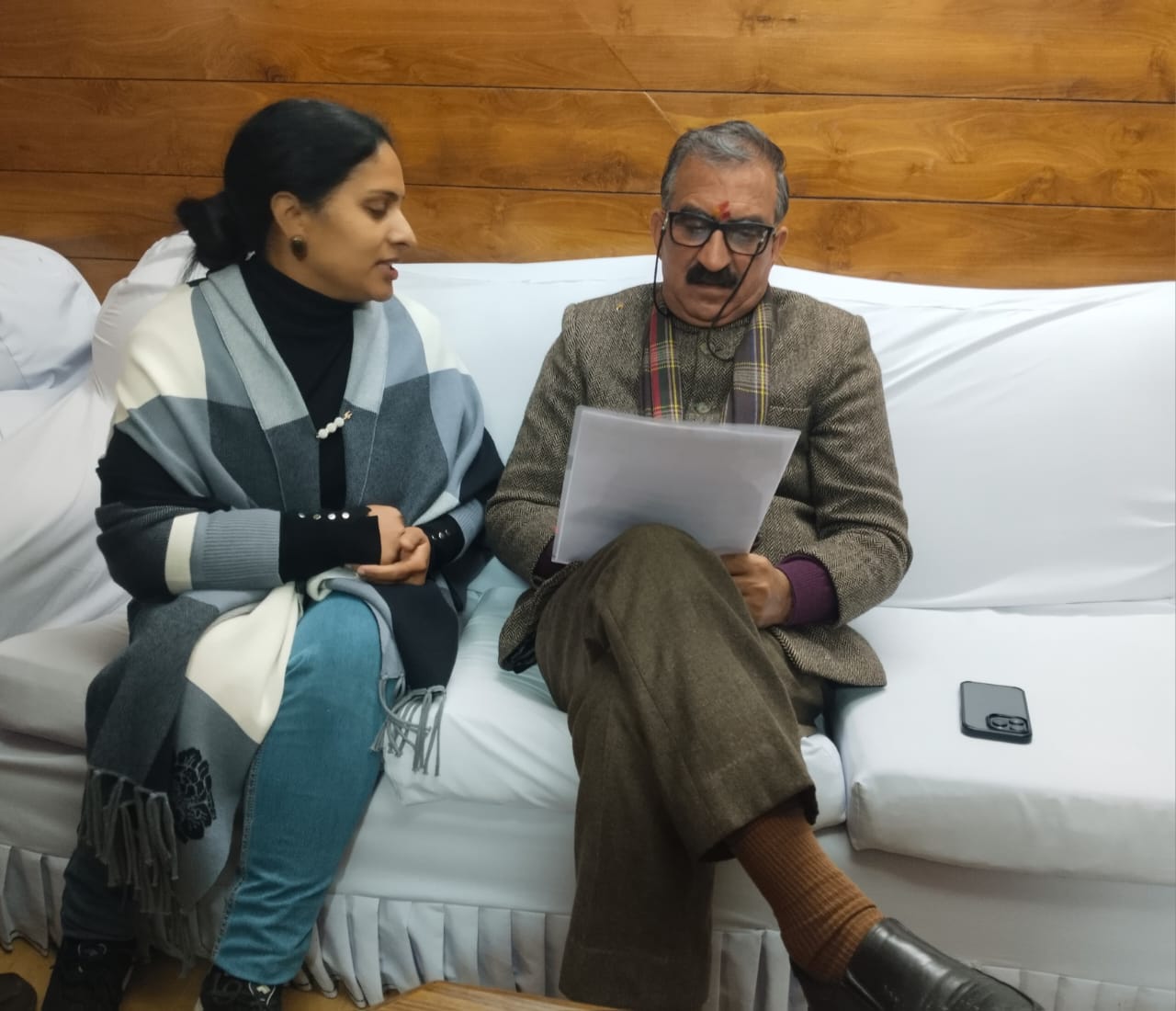UNICEF Report Highlights Devastating Impact of Lebanon’s War on Children, Urges Immediate Global Support.
BEIRUT:
The ongoing effects of Lebanon’s recent war continue to severely impact children, even after the ceasefire took effect in November 2024, according to a recent UNICEF report. The conflict has left an indelible mark on children’s health, education, and emotional well-being, requiring urgent international intervention to mitigate its long-term consequences.
The war forced many children to flee their homes, destroyed essential service facilities, and caused widespread physical and emotional trauma. “The war has taken a shocking toll on children, affecting almost every aspect of their lives – their health, their education, and ultimately their futures,” said Akhil Iyer, UNICEF Representative in Lebanon. “Lebanon’s children need urgent support to heal, rebuild their lives, and survive the lasting impacts of this crisis.”
A UNICEF survey conducted in January 2025 revealed alarming statistics about the psychological toll on children. Seventy-two percent of caregivers reported their children experienced anxiety or nervousness during the war, while 62 percent indicated their children were depressed or sad. Although eight out of ten caregivers observed some improvement in their children’s mental health after the ceasefire, those who endured prolonged traumatic stress could face lifelong health and psychological challenges.
The report also highlights a grim reality regarding children’s nutrition, especially in the heavily bombarded Baalbeck-Hermel and Bekaa regions. In Baalbeck-Hermel, more than half of children under 2 years of age are suffering from severe food poverty. In Bekaa, the rate has surged to 45 percent, a dramatic rise from 28 percent in 2023. Children are considered in severe food poverty if they consume fewer than two of eight key food groups. In addition, nearly half of children under 18 in Bekaa and one-third in Baalbeck-Hermel had either gone without food or had just one meal the day before the survey. Nationwide, 30 percent of children are in a similar situation.
Poor nutrition and insufficient meal frequency hinder children’s growth and cognitive development, making them more vulnerable to life-threatening malnutrition.
The war also exacerbated Lebanon’s already fragile education system, which had previously left over 500,000 children out of school due to economic challenges, teacher strikes, and the COVID-19 pandemic. Schools were either destroyed or heavily damaged, and many were repurposed as shelters for the 1.3 million people displaced by the conflict. Even after the ceasefire, over 25 percent of children remain out of school, a decrease from 65 percent during the war. Financial barriers, such as high school fees, transportation costs, and the price of educational materials, prevent many children from returning to school.
The UNICEF report further reveals that the economic strain on Lebanese families has forced many to make dire choices. Forty-five percent of households had to cut spending on health, while 30 percent reduced their spending on education to afford basic necessities. Furthermore, 31 percent of households reported a lack of drinking water, 33 percent could not access necessary medications for their children, and 22 percent lacked heating during the winter.
Lebanon faces immense challenges in recovering from both the war and the ongoing political and economic instability. UNICEF has been on the ground supporting children throughout the conflict and is committed to continuing recovery and rebuilding efforts.
“This data provides undeniable evidence of the critical need to act now,” said Iyer. “Lebanon must receive the help it requires to restore vital infrastructure and services, ensuring that children have a future to look forward to.” He called on all parties to adhere to the ceasefire terms and collaborate with the international community to sustain peace, stressing the importance of prioritizing children’s rights and needs in Lebanon’s recovery agenda.
At this pivotal moment in Lebanon’s history, UNICEF calls on the international community to support the children of Lebanon and contribute to the 2025 appeal of US$658.2 million, aimed at delivering lifesaving assistance to 2.4 million people across the country. The urgency of this appeal cannot be overstated as Lebanon continues to recover from the devastating effects of war, ensuring a brighter future for its children.



